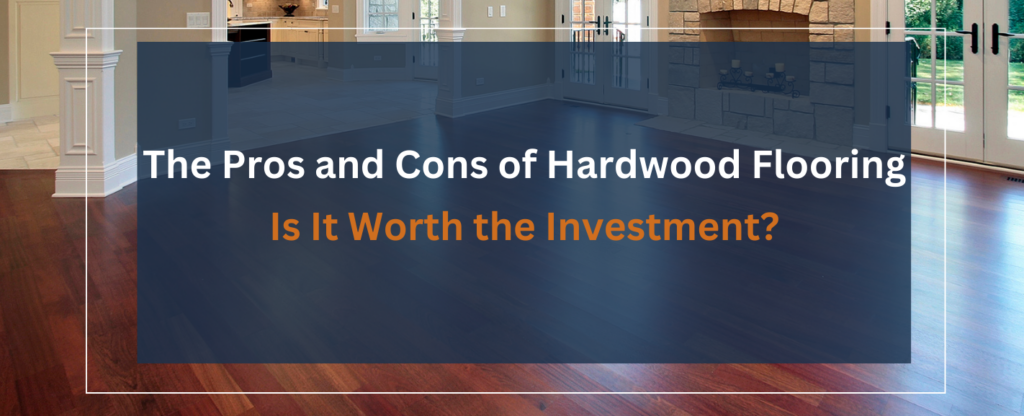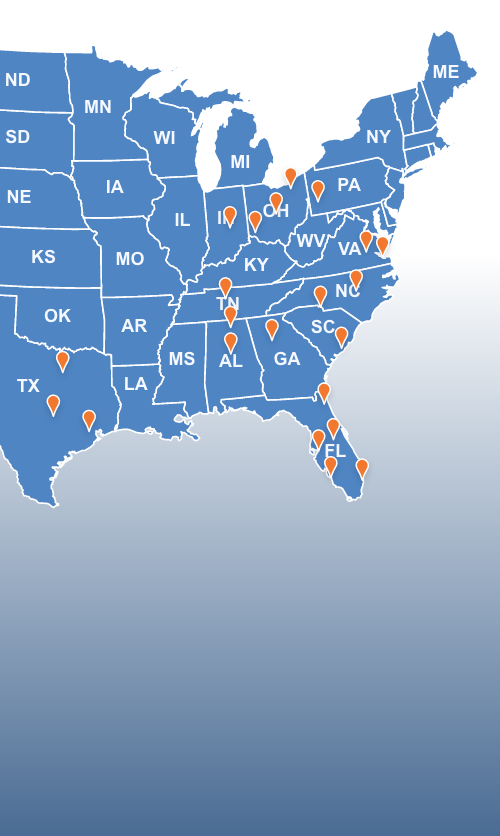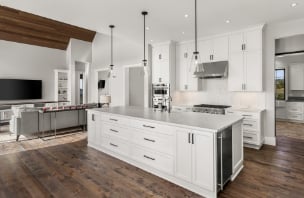

Choosing the right flooring is essential when you’re updating your home or putting the finishing touches on a new one. Whether you go for carpet, tile, laminate, or hardwood floors, it can really change how your place looks and feels.
Hardwood floors are classic and never go out of style, but they can be a bit pricey upfront and need a lot of maintenance.
Below are some points to consider if you’re considering getting hardwood floors for your home.
Pros of Hardwood Flooring


Timeless and Increases Home Value
Hardwood floors boast a classic beauty that complements any design scheme, from rustic to modern. The natural patterns in the wood bring a unique, appealing character to each room.
Hardwood not only enhances the appearance of your home but can also significantly increase its market value. Buyers often prefer hardwood for its quality and are willing to pay more for it, making hardwood floors a wise investment in the long run.
Durability and Longevity
One of the standout benefits of hardwood flooring is its durability. Well-maintained hardwood floors can last for decades— or even centuries.
The ability to refinish the surface means minor damages can be easily repaired; for bigger blemishes, the floor can be sanded down and re-stained or resealed, making it look brand new again.
This longevity beats many other flooring options, which might need complete replacement after a few years.
Easy Maintenance and Hygiene
Hardwood floors are simple to clean and maintain. Regular sweeping and occasional damp mopping are all it takes to keep these floors looking pristine. Additionally, hardwood doesn’t harbor dust, allergens, or fleas as carpets do, making it an excellent choice for homeowners keen on maintaining a clean, healthy living environment.
Variety and Versatility
With an array of species, colors, finishes, and installation patterns, hardwood flooring offers a versatility unmatched by other materials.
Whether you’re aiming for the warm tones of cherry wood or the sophistication of oak, there’s a style to meet every preference. This versatility ensures that hardwood floors can seamlessly elevate the design of any room in your home.
Cons of Hardwood Flooring


Initial Cost and Installation
Premium wood species and high-quality planks can be expensive, and professional installation adds to the overall cost. Furthermore, the installation process can be lengthy and disruptive, requiring a significant commitment of time and resources.
Susceptibility to Damage
While hardwood floors are durable, they’re not immune to damage. Exposure to water can cause warping, and without proper care, planks can become scratched or dented from heavy foot traffic, pet claws, or furniture. Regular maintenance and mindful use are necessary to preserve the floor’s integrity over time.
Sensitivity to Environmental Changes
Hardwood floors can be sensitive to changes in humidity and temperature, which can lead to the expansion and contraction of the wood. In extreme cases, this can cause gaps between boards or warping.
Homes in high-humidity areas or those subject to significant seasonal changes might require additional humidity control measures to maintain the stability of hardwood flooring.
Noise
Hardwood floors do not offer the sound dampening qualities that carpets or some other flooring materials do. Footsteps, pet nails, and dropped objects can produce noticeable noise, which might be a consideration for multi-level homes or apartments.
Many people choose to use various rugs and runners to help dampen the sound while preserving elegance.
Factors to Consider in Hardwood Flooring
Consideration of lifestyle and foot traffic patterns helps choose the most suitable option for each room. Whether it’s the warm hues of oak or the rich tones of mahogany, the wood species you choose will impact the overall look and feel of your home.
For eco-conscious homeowners, understanding the impact of hardwood flooring is essential. Sustainable forestry practices and certification programs for eco-friendly options help mitigate concerns about deforestation and environmental harm.
Choosing responsibly sourced hardwood ensures that your flooring decision aligns with your values.
Maintenance Tips for Hardwood Flooring
Proper maintenance is key to prolonging the life and beauty of your hardwood floors. With the correct cleaning techniques and preventive measures, you can protect your investment and keep it looking as good as the day it was installed.
Protect it from Scratches and Dents
The surface of your hardwood floor may become scratched or dented over time due to foot traffic, pets, or furniture. To prevent these damages, consider using protective pads under furniture legs and enforcing a no-shoe policy indoors.
Regularly trim your pets’ nails to minimize scratching, and opt for rugs in high-traffic areas to protect the floor from wear and tear.
Deal with Spills Immediately
Hardwood flooring is sensitive to moisture. Water can seep into the wood, causing it to warp and stain. Therefore, it’s crucial to clean up any spills immediately. Wipe off water, drinks, or any other liquid right away using a dry, absorbent cloth.
Regular Cleaning
Sweep your floor regularly using a soft-bristle broom or a vacuum cleaner designed specifically for hardwood. This helps remove dirt and dust that can scratch the wood surface. An occasional damp-mop using a specially designed hardwood floor cleaner can also help maintain the shine. Avoid using excessive water, and never use wet-mops or steam mops, as they can damage the floor over time.
Refinish when Necessary
One of the benefits of hardwood flooring is that you can refinish the surface if it begins to show signs of wear. Refinishing involves sanding away the top layer of the wood to renew its appearance and then applying a fresh coat of finish.
Depending on the thickness of your wood, you can generally refinish hardwood floors several times over their lifespan.
Monitor Humidity Levels
Since hardwood is sensitive to humidity, it’s essential to monitor and regulate the humidity levels in your home.
Fluctuating humidity levels can lead to the wood shrinking or expanding, causing cracks or warping. Try to maintain a humidity level between 40% and 60% to keep your floors in their best condition.
Use the Right Products
While it may be tempting to use all-purpose cleaners on your hardwood floors, it may not be the best idea. Certain cleaning products contain harsh chemicals that can strip the finish off your floor or cause discoloration. Always opt for cleaners that are specifically designed for hardwood floors.
Check more ways on how to care for hardwood floors.
So, Is Hardwood Flooring Worth the Investment?
Hardwood floors are certainly worth considering for those homeowners who appreciate the durability, beauty, and potential to boost value in their home. Moreover, the simple pleasure of walking on a natural, warm surface that ages gracefully can’t be understated.
While hardwood floors come with their own difficulties, the pros outweigh the cons for many homeowners.
With care, utilizing the tips above, and picking out the proper finish and variety, you’ll have hardwood flooring that should last a long time. It is not only a purchase; it is an investment in your house’s future.
Whether your heart is set on hardwoods, or you still need to decide if they are right for you, 50Floor’s free in-home consultations can answer any lingering questions you may have and take you from imagination to reality, and most times in less than one day! Schedule your free in-home consultation today.



